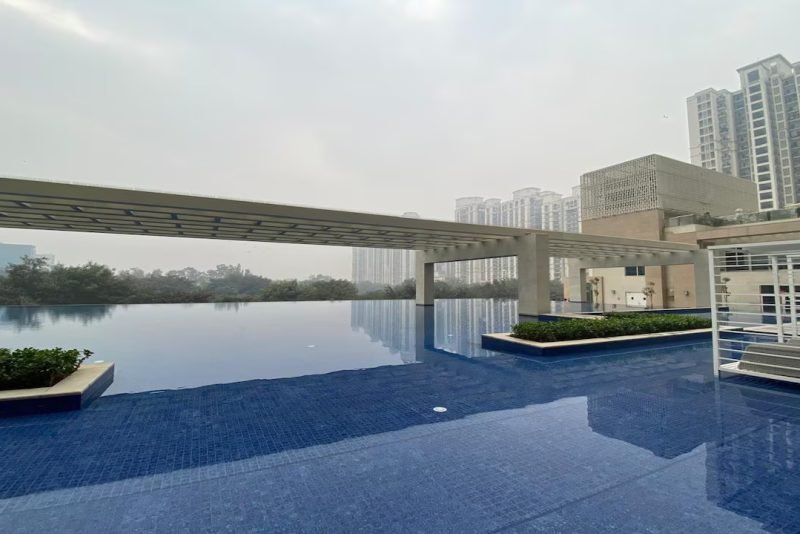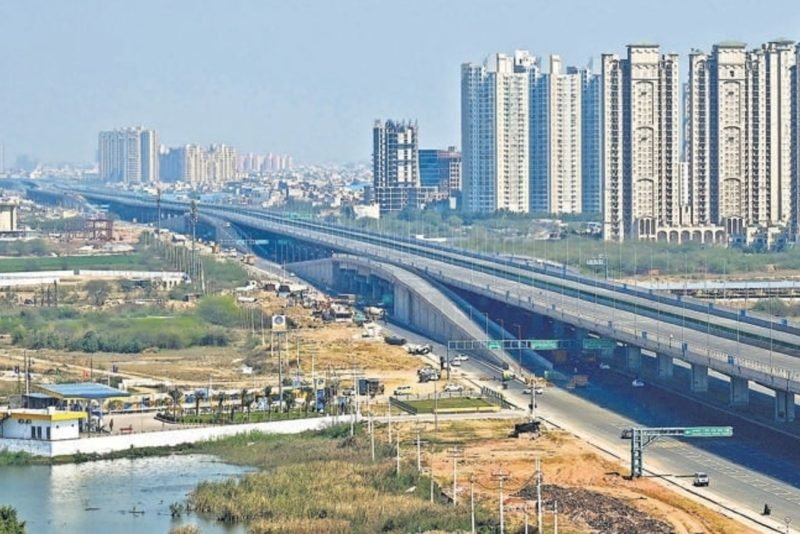Driven by homebuyers’ increasing preference for branded homes, some of the top developers of the country have recorded their best-ever sales in 2021-22.
Notwithstanding the devastating second wave of the pandemic, India’s housing space staged a convincing comeback in 2021. ANAROCK data reveals that housing sales rose 71% YoY in 2021 with close to 2.37 lakh units sold, thus reaching 90% of pre-COVID 2019 levels. MMR recorded the highest sales at 76,400 units, followed by NCR with about 40,050 units sold.
Again, amid the receding impact of Omicron and a significant decline in caseload, residential markets across the top eight cities together contributed to a 4-year high in the sales volume in January-March 2022, according to an Insite report by 99acres.
Amid fast-growing housing sales and driven by homebuyers’ increasing preference for bigger and branded homes, some of the top developers of the country have recorded their best-ever sales in 2021-22. For instance, while Bengaluru-based Prestige Estates crossed the pre-sales mark of Rs 10,000 crore in FY22, Lodha recorded pre-sales at Rs 9,024 crore for FY22.
Prashant Bindal, Chief Sales Officer, Lodha, says, “We have observed a good recovery since October 2020 and the momentum continues to be promising. We have witnessed a strong demand for quality homes with bigger areas, open green spaces, and world-class amenities. With each passing quarter, demand only strengthens with rising consumer confidence in strong real estate brands.”
Lodha claims to have reported best-ever quarterly and annual pre-sales performance as well as strong margins for the quarter ended March 31, 2022. For the quarter ended March 2022, Lodha had 37% YoY growth in pre-sales and 36% growth in collections compared to Q4FY21.
“We delivered India pre-sales at Rs 9,024 crore for FY22, therefore meeting our guidance, despite disruption due to the second wave in Apr-May 2021 and the impact of Omicron in Jan 2022. Our ‘for-sale’ part of the business outperformed our annual guidance by registering a 57% YoY growth. It has been a successful fiscal for us and moving with guidance for FY23 that forecasts a ~27% growth, i.e., ~Rs. 11,000+ cr in pre-sales,” he adds.
Citing the reasons for growth, Bindal says the ‘new normal’ lifestyle has considerably remodeled their existence, with one of the major changes being the shift in the definition of an ideal home. “The factors that are pushing for peripheral growth are properties with extra space to build recreational rooms, effortless access to essential services, and the freedom to take up outdoor activities in the vicinity has seen a surge in demand. The availability of larger land parcels and spacious areas has induced a significant demand for bigger houses. In all, it has been a successful fiscal for Grade A developers who have the capability to provide great homes and timely delivery. We are positively seeing an upswing, that is here to stay,” he observes.
According to industry experts, India’s housing market is experiencing a strong rebound as it emerges from the depths of the pandemic’s impact.
“The residential market is back to pre-Covid levels and in some markets is higher than what it was in 2019. Luxury housing also witnessed tremendous interest from across demographics. This can be attributed to the fact that extended periods of confinement at home during the pandemic induced NRIs and UHNIs to invest in a second home or upgrade to their housing arrangements with more amenities and facilities along with an an-all-time low-interest regime, slashed stamp duty charges in certain states, aggressive pricing policies, and discounts pursued by real estate developers and push given by the government to the affordable housing segment as well,” says Shveta Jain, MD, Residential Services, Savills India.
DLF is another developer whose residential business had a record fiscal year, with new sales bookings of Rs 7,273 crore, representing a 136% increase over the previous year.
“We witnessed strong growth across all our segments, with the luxury segment leading this trend,” DLF said while announcing its annual result. According to the company, the Camellias, its super-luxury offering, received bookings worth Rs 2,550 crore in the previous fiscal year.
Pankaj Bansal, director at M3M India and founder of Smartworld, said, “At the family level, we have achieved sales of Rs 10,500 crore, with M3M contributing Rs 6,100 crore and Smartworld in its first year reporting sales of Rs 4400 crore. With the kind of launch we have in the pipeline, we are confident that M3M alone will breach the Rs 10,000-crore mark this year.”
Low mortgage rates, a steady macroeconomic environment, stamp duty reductions in certain states, and consumer employment stability drove initial demand.
“What broke the ground this year is people’s mentality towards quality infrastructure and services. Buyers are on the lookout for strong real estate brands that can give them confidence in terms of comprehensive amenities, good location backed by superior infrastructure and timely delivery. Both of our maiden projects, Smartworld Gems and Smartworld Orchard, have been wonderfully received, and the phenomenal sales response is a testament to the faith that consumers have put into the brand Smartworld,” said Vivek Singhal, CEO, Smartworld Developers Pvt Ltd.
Shashank Vashishtha, Executive Director, eXp India, said, “We have been receiving robust queries for all types of housing segments, especially from Tier I and Tier II cities where buyers and investors are mostly millennials and are on the lookout for quality housing. A lot has been determined by the pandemic recoveries which brought stable income, a sense of owning a home, digitization and supportive government policies leading to increase in demand for residential living.”
Developers say India’s realty market has shown green shoots of recovery rather quickly from the pandemic-induced crisis, thanks to benign interest rates, hybrid work mode and pandemic-led realisation of the need for one’s own home as a primary life goal, attractive pricing and supportive government policies.
“Mortgage rates are lowest ever historically and have played a significant role in aiding homebuyers convert their demand into actual buying. Q4 2021 witnessed record quarterly home sales. The bull run in the residential real estate segment continues in the first quarter of the FY 22-23. At Krisumi, we have witnessed an unrivaled demand. We have sold more than 75% of our inventory and we will soon be stocking out. This month we have clocked bookings of Rs 175 crore,” said Mohit Jain, Managing Director, Krisumi Corporation.
The demand for residential property could be seen across segments and geographies. Buyers and investors are highly motivated by the stable income and post-pandemic recoveries can also be regarded as an inflexion point for Indian real estate businesses to reach new heights and contribute to the economy.
Ashish Narain Agarwal, Founder & CEO, PropertyPistol.com, says, “There was indeed a strong demand for homes due to the pent-up demand owing to the pandemic in FY 2020-21 and in addition to this, the government’s relaxation in the stamp duty and interest rates during that period triggered the sale of homes like never before, especially in the affordable housing segment. To add to this, the third quarter of FY 21-22, also a festive season in India, witnessed the majority of sales among the top real estate developers.”
Despite rising sales, challenges, however, remain. Currently the major challenge the sector faces is the increased interest rates on home loans and this may have an immediate impact in the form of dipped sentiments and delayed decision making to purchase homes.
“However, we need to note that the post-pandemic recovery has offloaded the pent-up demand for homes in the market and improved standard of living has pushed this demand further. Also, the festive season has always spiked the sales tangent across major regions in the country every year and we hope the sector will see a decent growth in the coming months,” says Agarwal.
Source : Financial Express




